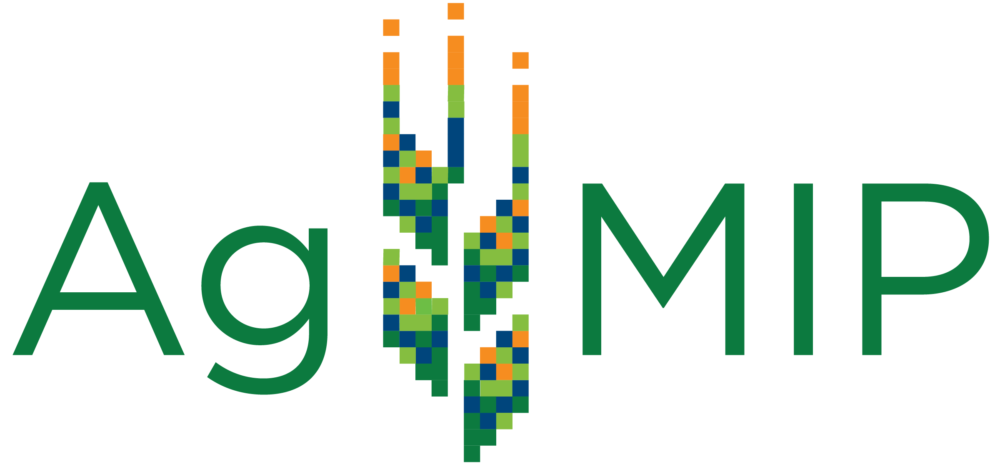West Africa
Main Contacts for Initiative: WASCAL
Heidi Webber and Dilys McCarthy
Brief Description of Activity
Establishment of crop modelling framework to assess impacts of climate change, socio-economic and technology changes on West Africa cropping systems with ultimate ambition to engage with support policy making. Current focus is on bio-physical crop yields and landuse, with ambition to expand to include farm and market analysis.
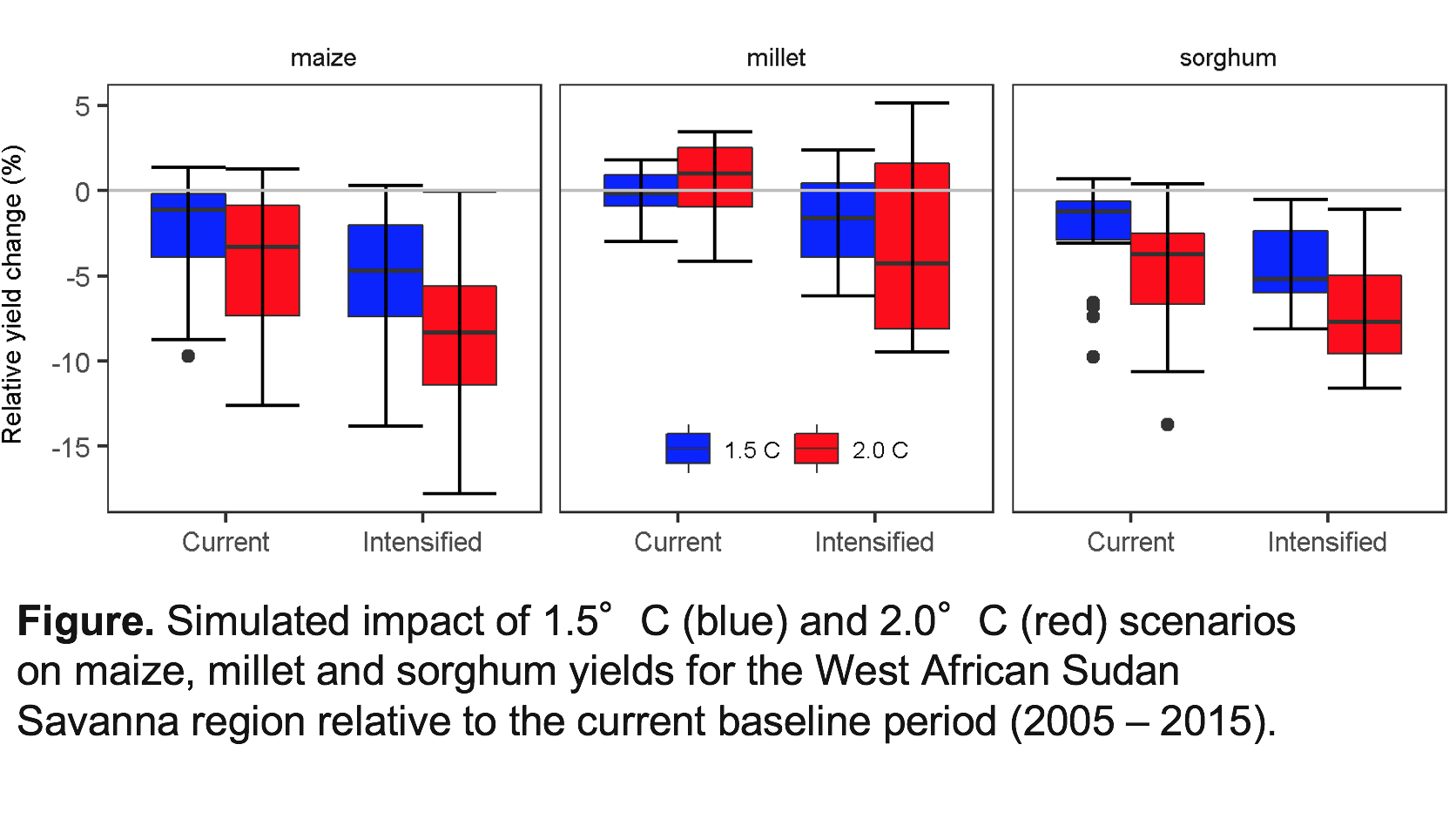
Overview of Participants
UniBonn & WASCAL, with informal cooperation CIWARA (U Ghana, CIRAD), AgMIP, U Florida
Current Research Focus
Climate and technology impacts on cereal crops in Sudan Savanna region
Recent Noteworthy Finding
Results indicate that 2.0°C will bring lead to lower yields than 1.5°C warming scenario, with larger losses for the intensification scenario. With intensification, higher [CO2] for the 2.0°C scenario offset some losses. We found no evidence to suggest that yield variability would increase with the additional half degree of warming.
Modeler Community of Practice (CoP)
For more details, visit: https://agmip.org/modeler-community-of-practice/
AgMIP Impacts Explorer – Nioro, Senegal
Smallholder rain-fed farms growing maize, millet and peanut
View the Regional Summary for Nioro, Senegal here.
View the Spatial Dashboard for Nioro, Senegal here.
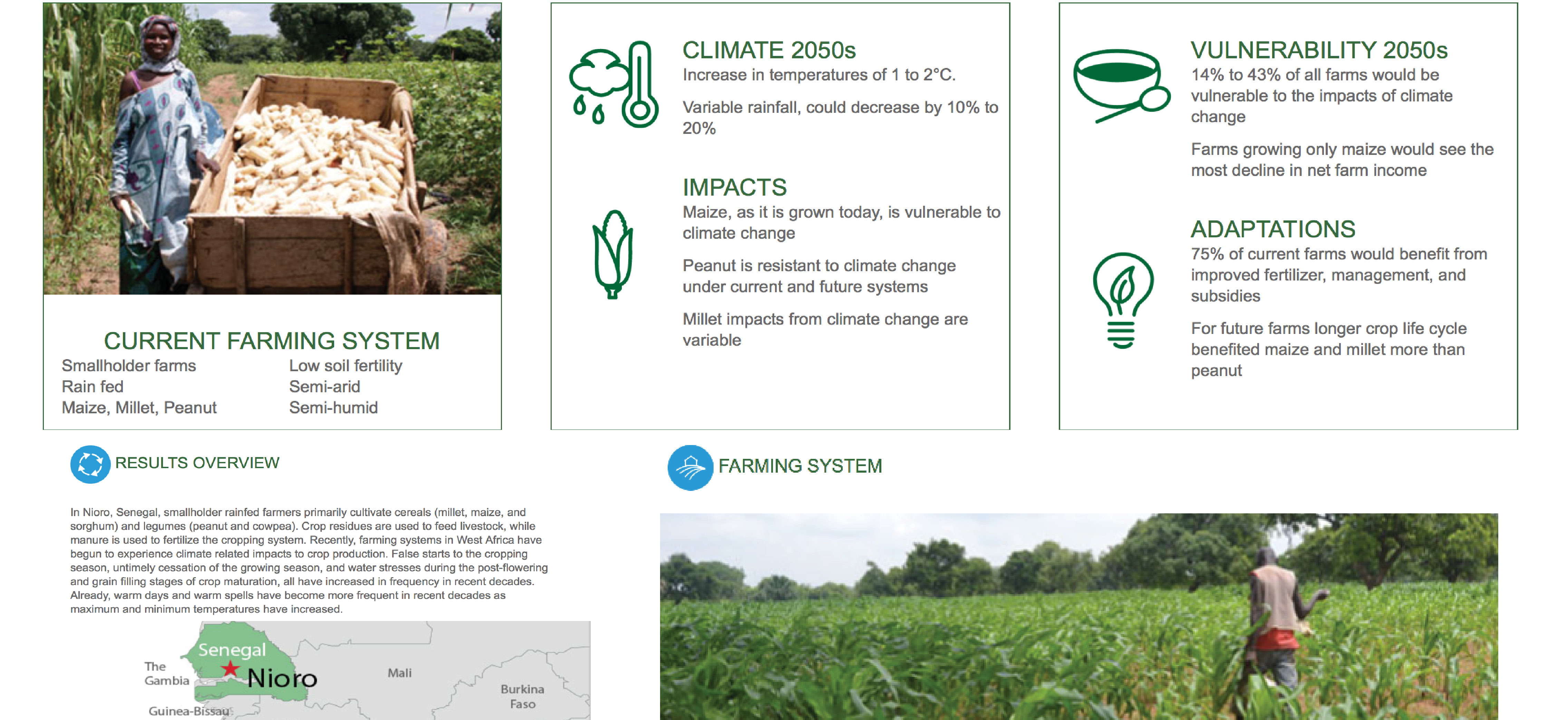

Prior Updates
Overview of Initiative
A significant portion of the Western Africa population is smallholder, rain-fed farmers. In recent history, rainfall patterns have changed. The season has changed in length, and the frequency of rainfall has altered. The potential threat of climate change on food security is increasing for this region. The Climate Change Impact on Western African Agriculture project aims to build a pathway to simulate impacts for the Region. Phase 2 (2015-2017) work for this team focused on: the Nioro region of Senegal; advancing one site in Ghana and one in Mali regions to full regional integrated assessments; and developing national scale asessments.
Work during Phase 2 particularly emphasized stakeholder engagement. The Western Africa team worked closely with Climate Change Agriculture Food Security (CCAFS) West Africa Flagship 4 and Flagship 2 (CASCAID) projects to ensure both district and national stakeholder engagement. Stakeholder engagement was achieved through informal interactions, workshops, and interviews. These engagements helped enhance the usefulness of the research findings for stakeholders.
In addition to stakeholder engagement, the research team expanded and redeveloped Representative Agricultural Pathways (RAPs) for these regions, incorporated livestock and commodities of focus into the models, developed adaptation packages, and ensured harmonized data for the West Africa Region. The project developed effective information that can be translated directly into usable information. These information products include graphics and visuals, short summaries, and information briefs.
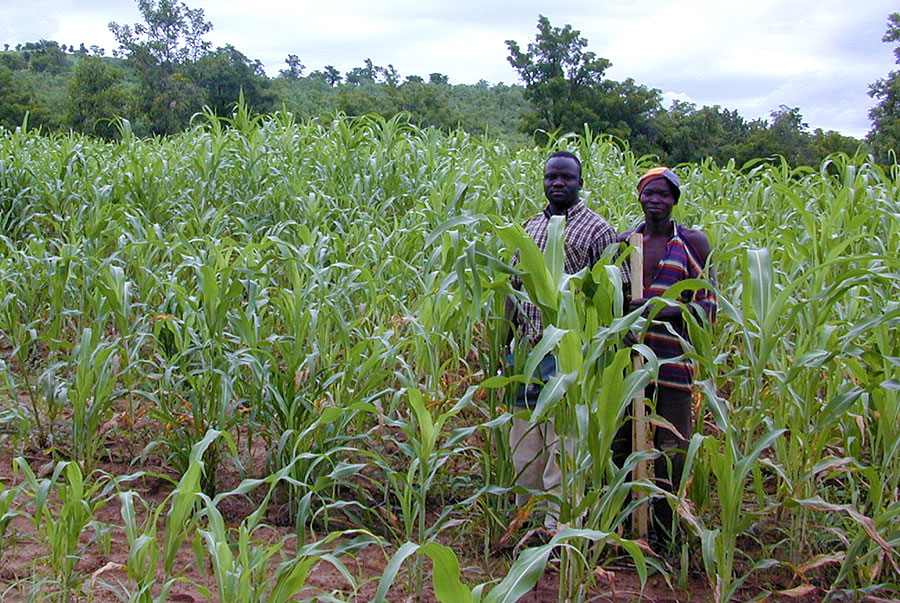
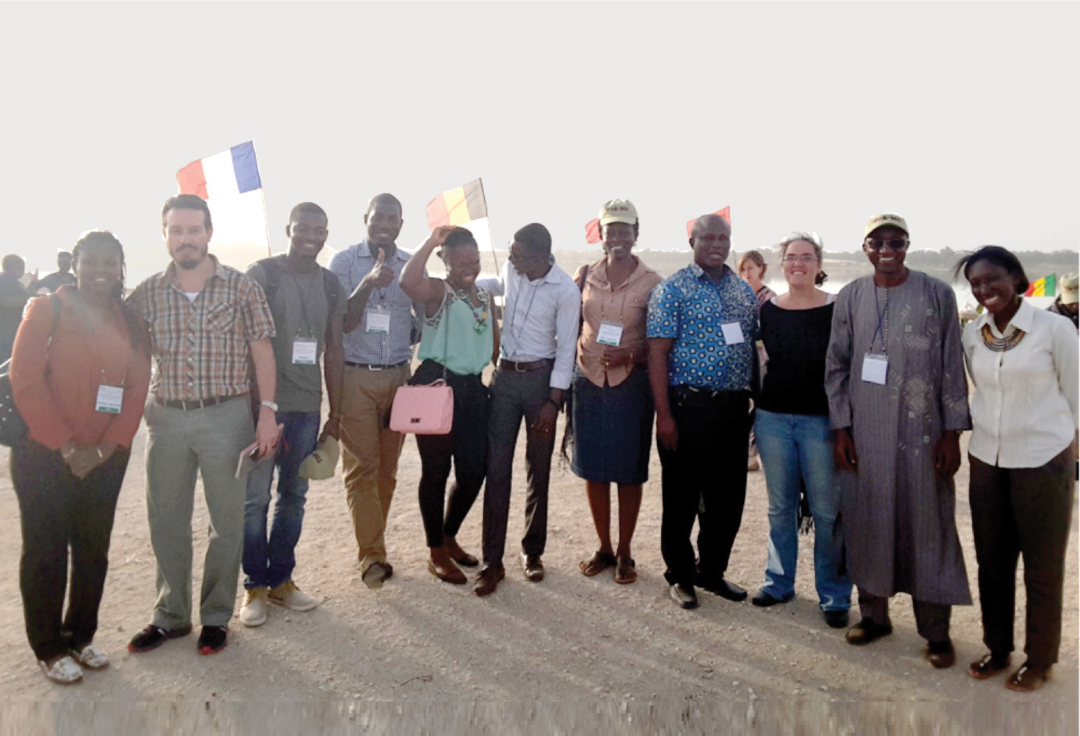
West Africa Team members
Dilys S. MacCarthy Principal Investigator; Crop modeling
Sibiry P. Traore Co-PI; Crop modeling/ Remote sensing
Ibrahima Hathie Co-PI; Socioeconoimc modeling
Seydou Traore Co-PI; Climate modeling
Samuel Adiku Co-PI; Crop modeling/ Remote sensing
Mouhamed Ly Climate modeling
Jonathon Anaglo Stakeholder liaison
Joseph K. Clottey Economist
Andree Nenkam Livestock/ Crop modeling
Bright S. Freduah Crop modeling
Eric C. Timpong-Jones Livestock integration
Agali Alhassane Crop modeling
Myriam Adam Crop/Livestock modeling; ARP
F.M. Akinseye Agro-meteorologist
S. Sakho-Jimbira Junior Ag. Extension
Ahmadou Ly Socioeconomics
Stephen Narh Crop modeling
Research Summary:
NIORO, SENEGAL
Crops: Millet, maize, peanut
Models: DSSAT and APSIM
Farm System: Cereal-legume
Economic Strata: Maize and non-maize
Possible Adaptation: Use of drought and heat tolerant varieties; Fertilizer micro dosing; Supplementary irrigation; Intensification of crop-livestock integration through on-farm fodder production
NAVRONGO, GHANA
Crops: Sorghum, maize, peanut
Models: DSSAT, APSIM, SARA-H
Farm System: Low input, cereal-legume
Economic Strata: Small – Large farms
Possible Adaptation: Use of drought and heat tolerant varieties; Fertilizer micro dosing; Supplementary irrigation; Intensification of crop-livestock integration through on-farm fodder production (dual-purpose) hybrids
KOUTIALA, MALI
Crops: Millet/sorghum, maize, peanut
Models: DSSAT, APSIM, Sarra-H
Farm System: Moderate-high input, cotten-cereal-legume
Economic Strata: Small farm households, large farm households
Possible Adaptation: Use of drought and heat tolerant varieties; Fertilizer micro dosing; Supplementary irrigation; Intensification of crop-livestock integration through on-farm fodder production (dual-purpose hybrids)
TAMALE, GHANA
Location: Tamale, Ghana
Crops: Maize, sorghum, peanut
Models: DSSAT and APSIM
Farm System: Low input, cereal – legume – livestock system
Economic Strata: Livestock – non livestock farm
Possible Adaptation: Use of drought and heat tolerant varieties; Fertilizer micro dosing; Supplementary irrigation; Intensification of crop-livestock integration through on-farm fodder production (dual-purpose hybrids
KEY PARTICIPATING INSTITUTIONS
University of Ghana – Ghana
The International Crop Research Institute for Semi-Arid Tropics (ICRISAT) – Mali
Initiative Prospective Agricole et Rurale (IPAR) – Senegal, Agrhymet – Niger
